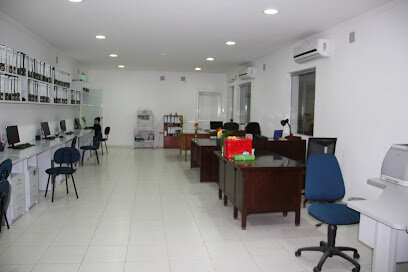Best Inheritance Law Lawyers in Asunción
Share your needs with us, get contacted by law firms.
Free. Takes 2 min.
List of the best lawyers in Asunción, Paraguay
1. About Inheritance Law in Asunción, Paraguay
Inheritance law in Paraguay is primarily governed by the Civil Code, known as the Código Civil Paraguayo. In Asunción, as throughout the country, the succession process determines how a deceased person’s assets are distributed among their heirs. The law protects the rights of spouses and children as “herederos forzosos” (forced heirs) and allows for testaments to shape distribution under formal rules.
Key concepts in Paraguayan succession include the legítima or forced share, the role of an albacea or executor, and the probate process known as a juicio de sucesión. The process often involves inventory, valuation of assets, settlement of debts, and transfer of titles to heirs. Practical steps like notarization, registration, and tax considerations are common in Asunción when wrapping up an estate.
Fuente: Poder Judicial de la República del Paraguay - Sucesiones y trámites relacionados.
Fuente: Hague Conference on Private International Law - Principles of private international law applicable to succession and cross-border issues.
2. Why You May Need a Lawyer
Situations in Asunción that typically require legal counsel include complex family relationships and contested estates. A lawyer helps you navigate local court procedures, notarial formalities, and possible disputes between heirs. Legal guidance also supports accuracy in asset inventories and tax compliance.
- The widow and children disagree on the distribution of the estate after a spouse dies in Asunción, causing a dispute over legítima shares and discretionary bequests.
- A will exists but its validity or interpretation is questioned by other heirs, necessitating an estate attorney to challenge or defend the document in court.
- Several heirs own properties in Asunción and elsewhere, creating cross-border ownership issues that require civil and probate expertise.
- The decedent left debts, and heirs worry about paying these obligations before asset distribution, including required tax payments.
- An administrator or albacea needs clear guidance on inventory, valuation, and fiduciary duties to avoid liability for mismanagement.
- Movable and immovable assets must be transferred into heirs' names, which involves notary actions and proper registry entries in Asunción.
3. Local Laws Overview
Paraguayan inheritance matters are primarily governed by the Código Civil Paraguayo and related civil and procedural rules. The Título de Sucesiones in the Civil Code sets the framework for valid wills, legítima, and the distribution of assets among heirs. The Código Procesal Civil provides the procedural steps for initiating and concluding probate actions in Asunción courts.
Other relevant norms include regulations on notarial formalities and public registry procedures that affect the transfer of titles and the registration of heirs. While reforms and updates occur over time, the basic structure of succession in Paraguay remains anchored in the Civil Code and civil procedure rules. For cross-border situations, international private law principles may come into play through recognized bodies and guides.
Recent reforms to Paraguayan inheritance procedures are discussed in national and international forums, with ongoing emphasis on simplifying probate processes and clarifying heirs rights. For practical guidance, consult official judicial resources and recognized international legal organizations.
Fuente: Poder Judicial de la República del Paraguay - Trámites de Sucesiones y documentos necesarios.
Fuente: Hague Conference on Private International Law - International private law and cross-border succession considerations.
4. Frequently Asked Questions
What is inheritance law in Paraguay, and who is affected?
Inheritance law governs how a deceased person’s assets are distributed among heirs and legatees. It affects spouses, children, and other legally recognized heirs in Paraguay.
What documents do I need to start a succession in Asunción?
You typically need a death certificate, the will if any, property deeds, family records, and evidence of debts. Requirements vary by case and court, so an attorney confirms the exact list.
How do I start a probate process in Asunción?
File a petition in the local court with the decedent’s death certificate and the will if present. An albacea or administrator may be appointed to manage the estate during proceedings.
When can heirs contest a will in Paraguay?
A contest may be raised if there are doubts about validity, formality, or interpretation of the will. Courts assess witnesses, signatures, and compliance with formal requirements.
Where do I register the transfer of property after a succession?
Property titles are transferred through the notarial and registry system in Asunción. The new owner’s name is entered in the Registro de la Propiedad corresponding to the asset location.
Why is the legítima important in Paraguay?
The legítima guarantees a forced share for certain heirs, primarily spouses and children. It limits the extent to which a decedent may freely dispose of assets by will.
Can a will made abroad be valid in Paraguay?
Foreign or overseas wills can be recognized if they comply with Paraguayan formal requirements and are properly presented in court for validation.
Should I hire a lawyer for a simple intestate succession?
Yes. An attorney ensures correct heir designation, proper inventory, accurate debt settlement, and timely registration of transfers, reducing liability risk.
Do I need to pay taxes in a Paraguayan inheritance?
There may be tax obligations on inherited assets. A lawyer or tax advisor helps determine liability and filing requirements for the estate.
How long does a typical succession take in Asunción?
Procedures vary, but a straightforward case may take several months, while contested matters can extend to more than a year depending on court workload.
Is there a difference between an executor and an administrator?
Yes. An executor (albacea testamentario) is named in a will to carry out its terms. An administrator is appointed by the court when there is no will or designated executor.
What is the first step to hire a lawyer for inheritance matters?
Identify a solicitor with civil or probate expertise in Asunción and arrange an initial consult to outline the case and fees.
5. Additional Resources
- Poder Judicial de la República del Paraguay - Información oficial sobre procesos de sucesión, requisitos y expedientes judiciales. https://www.pj.gov.py
- Hague Conference on Private International Law - Guidance on international private law and cross-border succession. https://www.hcch.net/en
- Organization of American States (OAS) - Legal topics and frameworks related to justice and private law in the Americas. https://www.oas.org
6. Next Steps
- Collect key documents such as the death certificate, the will (if any), property deeds, and a list of heirs. This helps the attorney assess the case quickly. Time estimate: 1-2 weeks.
- Consult a reputable inheritance lawyer in Asunción to review the estate, explain options, and outline potential timelines and costs. Schedule within 1-3 weeks.
- Provide all requested documents to your lawyer and prepare questions about legitimacy, taxes, and expected court steps. Allocate 1 week for initial submission prep.
- Agree on a plan for filing the probate petition, appointing an executor or administrator, and inventorying assets. Expect a 2-4 week planning period.
- Complete asset valuation, debt settlement, and tax considerations with your attorney and tax advisor. This typically spans 1-3 months depending on complexity.
- Submit the probate petition to the appropriate court and attend hearings as required. Court appearances can occur over a few months in straightforward cases.
- Execute the court order and register transfers of titles with the Registro de la Propiedad, ensuring heirs receive proper titles. Finalize within 1-3 months after court resolution.
Lawzana helps you find the best lawyers and law firms in Asunción through a curated and pre-screened list of qualified legal professionals. Our platform offers rankings and detailed profiles of attorneys and law firms, allowing you to compare based on practice areas, including Inheritance Law, experience, and client feedback.
Each profile includes a description of the firm's areas of practice, client reviews, team members and partners, year of establishment, spoken languages, office locations, contact information, social media presence, and any published articles or resources. Most firms on our platform speak English and are experienced in both local and international legal matters.
Get a quote from top-rated law firms in Asunción, Paraguay — quickly, securely, and without unnecessary hassle.
Disclaimer:
The information provided on this page is for general informational purposes only and does not constitute legal advice. While we strive to ensure the accuracy and relevance of the content, legal information may change over time, and interpretations of the law can vary. You should always consult with a qualified legal professional for advice specific to your situation.
We disclaim all liability for actions taken or not taken based on the content of this page. If you believe any information is incorrect or outdated, please contact us, and we will review and update it where appropriate.









